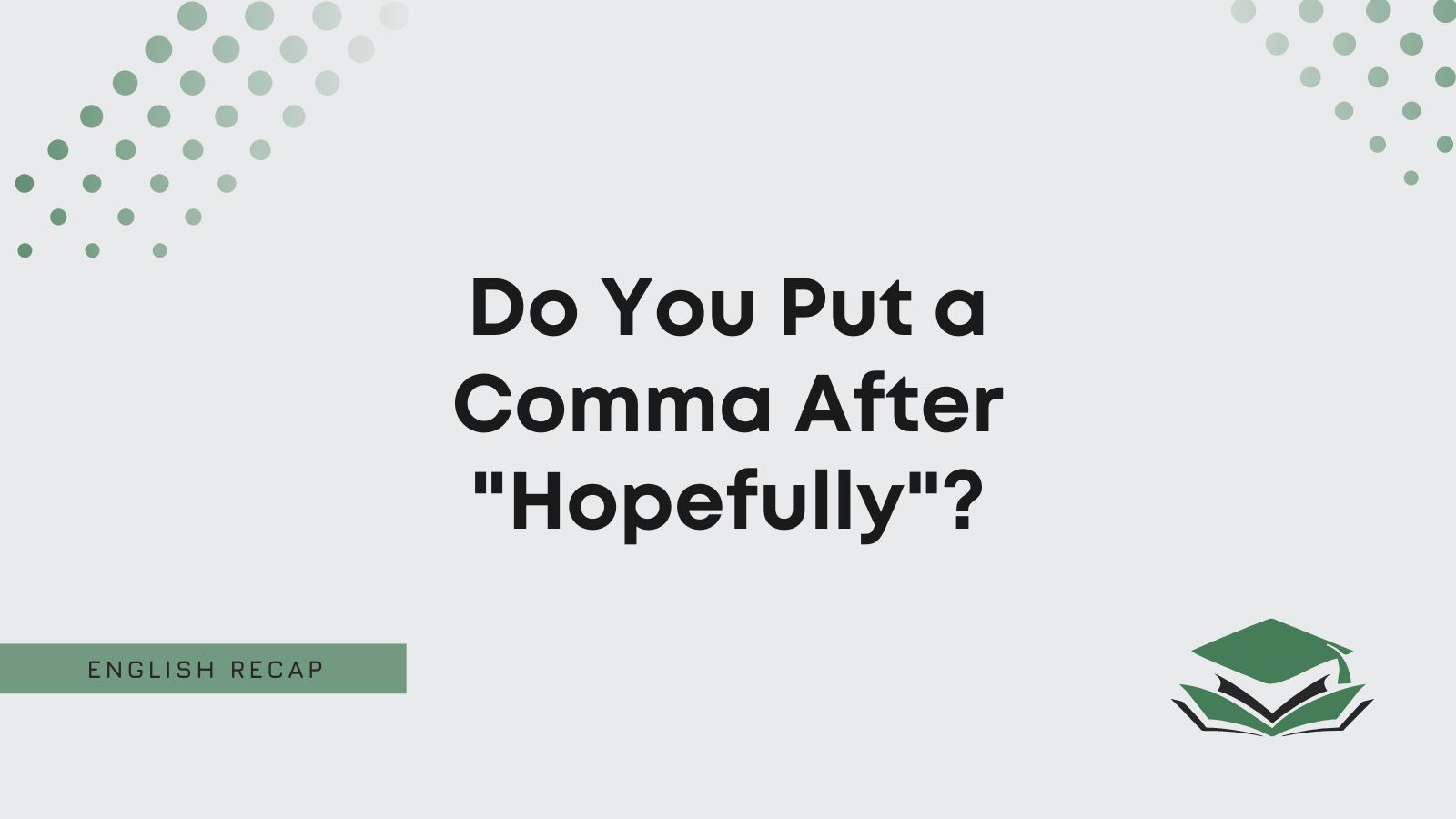Rule 1: When “hopefully” starts a sentence, you should always put a comma after it.
- Correct: I want to do well this year. Hopefully, I will if I work hard.
- Incorrect: I want to do well this year. Hopefully I will if I work hard.
Rule 2: You can put a comma before and after “hopefully” when it appears in the middle of a sentence, and the meaning is “it is hoped” or “I hope” that something will or won’t happen.
- Correct: Science and technology, hopefully, will be more influential in government policy.
- Correct: Science and technology will hopefully be more influential in government policy.
Rule 3: You should use a comma after “hopefully” when you use it with a conjunction such as “but” or “and.”
- Correct: He went out earlier, but hopefully, he will be back soon.
- Incorrect: He went out earlier, but hopefully he will be back soon.
Rule 4: Do not use a comma with “hopefully” when it functions as a regular adverb modifying a single verb rather than a whole sentence.
- Correct: She watched hopefully as the presenter read the lottery numbers on the television.
- Incorrect: She watched hopefully, as the presenter read the lottery numbers on the television.
When to Use a Comma After “Hopefully”
To find out when to use a comma after “hopefully,” you should refer to Rules 1-3.
Rule 1: Use a comma after “hopefully” when it is the first word in a sentence.
This rule applies to other adverbs such as “regularly” and “frequently.”
When you start the sentence with an adverb of this type, you always need to put a comma. In this position, “hopefully” is modifying the whole sentence rather than just one word.
- Hopefully, if we save enough money, we can take a break this summer.
- Hopefully, she will get this message before she leaves the office.
Rule 2: You can use a comma after “hopefully” when it is in the middle of a sentence.
A comma is not always necessary when you insert “hopefully” in the middle of the sentence.
- Correct: Their intelligence hopefully will help them lead prosperous lives.
- Correct: Their intelligence, hopefully, will help them lead prosperous lives.
Rule 3: Use a comma after “hopefully” when you use it to connect clauses with conjunctions like “but” or “and.”
- I tried my best on the test, and hopefully, I will have passed.
- He may have gotten trapped in the storm, or hopefully, he made it home in time.
- I hadn’t studied for that specific topic, but hopefully, I passed anyway.
When to Avoid a Comma With “Hopefully”
Rule 4 explains when you shouldn’t use a comma with “hopefully.”
Rule 4: You shouldn’t use a comma with “hopefully” when it modifies a single verb rather than the whole sentence.
“Hopefully” can describe one verb, or it can be used to describe the whole sentence. Therefore, you do not need to use a comma when you use it to describe a single action.
- He handed in the essay hopefully but not confidently.
- John listened hopefully to Maria’s words, concentrating on each of them.
When to Use a Comma Before “Hopefully”
When you need to decide when to use a comma before “hopefully,” you should refer to Rule 5 and Rule 2.
Rule 5: Use a comma before “hopefully” when it comes as the last word and modifies the whole sentence.
The word “hopefully,” along with other adverbs like “obviously,” can refer to the whole sentence as well as just a single verb.
In the instances when “hopefully” refers to the whole sentence, you should use a comma before it.
- The Government said that they would build new houses, hopefully.
- He said we could go out for dinner tonight, hopefully.
Rule 2: You can use a comma before “hopefully” when it is in the middle of the sentence and is modifying the whole sentence.
However, it is not always necessary to do so.
- Correct: The climate change protests, hopefully, will lead to more decisive action.
- Correct: The climate change protests hopefully will lead to more decisive action.
Conclusion
Use a comma when the term “hopefully” appears at the start or end of a sentence and modifies the whole sentence. In contrast, do not use a comma when “hopefully” only modifies a single verb. Also, use a comma when “hopefully” connects clauses with “and/but/or,” etc.

